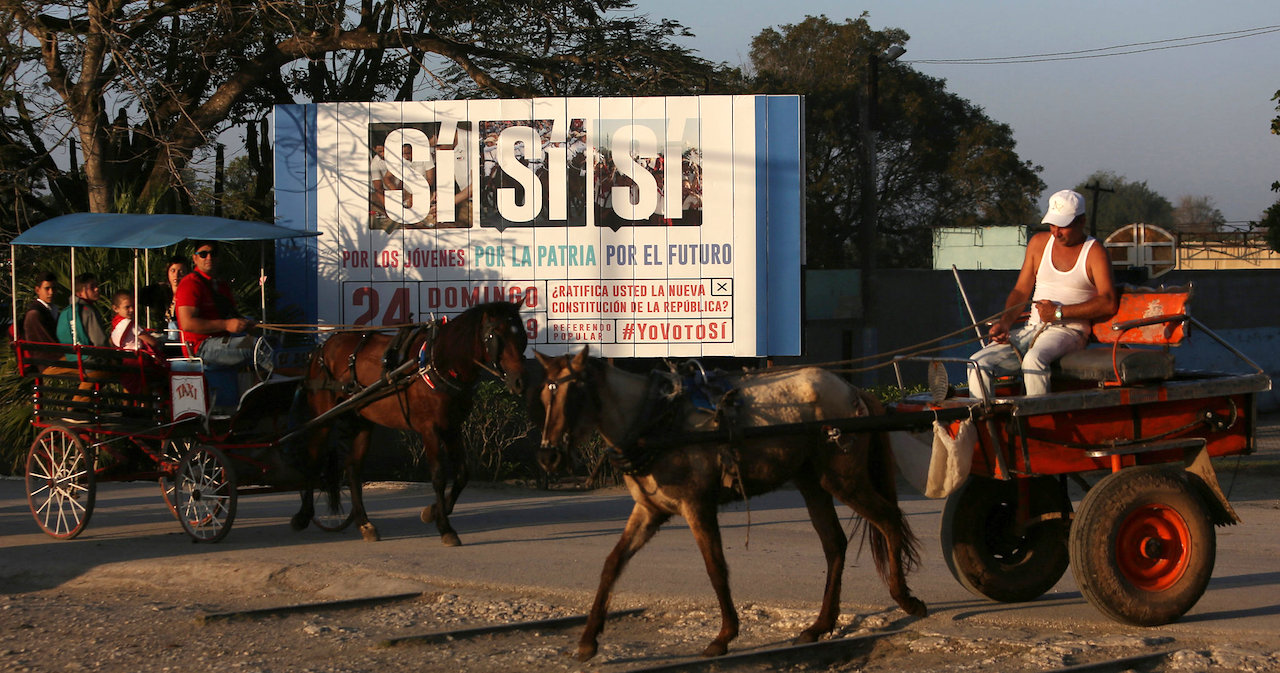Is it possible to promote revisions of the Cuban Constitution less than a year and a half after its entry into force?
As DIARIO DE CUBA has explained in previous publications, Article 227 of the Constitution recognizes citizens' right to request its modification by collecting the signatures of 50,000 voters, and states that "the law establishes the procedure, requirements and guarantees " in this regard. However, the Government has not included this law on the current legislative schedule.
The procedure to lodge the request exists, however, although it is buried in Castroism's legal morass; specifically in Articles 245 to 289 of Chapter XXI (on the Reform of the Constitution of the Republic) of Law 131, approved in 2019 and published in the Official Gazette on January 16, 2020.
Neither the entry into force of said Law 131 nor its contents have received the attention that their importance merits. Has this been intentional? The truth is that this clashes with the information that the official press has offered on other provisions approved by the Government.
Ignorance of the requirements of this law impedes the proper solicitation of constitutional reform.
According to Article 245, "if the initiative (to request constitutional reform) is exercised by citizens, they must include certification of their status as voters, validated by the National Electoral Council."
Not knowing this can lead to the erroneous belief that it is enough to collect the 50,000 signatures to, at least, file a petition with the National Assembly. However, the legislative body could reject the application based on the absence of the certification of voter status for each signatory of the petition.
There is no explicit way to obtain this certification, which each person signing would have to request. However, Law 127/19 (Electoral Law) establishes the public nature of the Electoral Registry and enables voters to request certification of their status as such.
Article 39 of the Electoral Law states that the secretary of the National Electoral Council's functions include the special task of overseeing the Secretariat's administrative processes. It is this official who certifies the valid voting status voter of each signer because, according to subsection b) of the aforementioned article, he is charged with certifying the official documents issued by the public information system that the National Electoral Council must provide so that they are valid vis-a-vis third parties; in this case, the National Assembly of Popular Power.
According to Articles 6, 7 and 8 of the Electoral Law "Cuban citizens, including members of the armed forces, who have reached the age of 16, have resided in the country for a period of not less than two years, are on file at the electoral registry, are not legally disqualified, and have full civil capacity" are qualified voters.
Therefore, those who live abroad (even if they have not lost their legal residence in Cuba) and have not been in the country for two consecutive years, are not classified as voters, and their signature would be invalid for legal purposes.
Too many obstacles? In any country a petition to reform the Constitution is an extraordinary situation and steps must be taken to ensure that fraud is not committed and that the petition is not "signed" by the deceased, or persons who are serving criminal sentences, for example.
Does the existence of this requirement render an effort to collect signatures to request constitutional reform futile? No, but it does oblige those who undertake it to ask the signatories to obtain the legally-required certification.
It also demands more commitment and effort by the signatories, since signing does not suffice. They must request the certification at the corresponding offices, and do so in person, because in Cuba it is not possible to do this by email. This step is currently hampered by the coronavirus, but it will not last forever.
In order to assist citizens, and aware that if the initiative does not comply with legal requirements it runs the risk of being rejected outright, the lawyer Julio Ferrer Tamayo has prepared a kind of proforma for the certification request, which includes the name, address and identity card number of the applicant, as well as the constitutional articles and the Electoral Law ensuring his right to obtain certification.
It is clear in advance that, even if the request meets all the requirements demanded by law, the current Constitution itself prevents anything related to "the irrevocability of socialism" from being reformed (Art. 229).
Nor would the National Assembly being forced to discuss the reform proposal entail its approval. Taking into account the history of Castroism, it is very likely that this will never happen.
However, in the opinion of opposition leader Manuel Cuesta Morúa, a member of Cuba Plural, a platform that is currently gathering signatures to request constitutional reform, if the petition is presented and the Assembly has no alternative but to put it to a vote, there would pave the way to develop legitimately recognized blocks of political opposition in Cuba.
